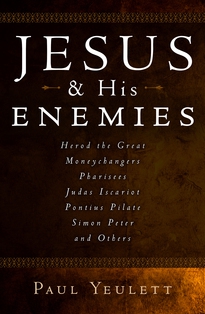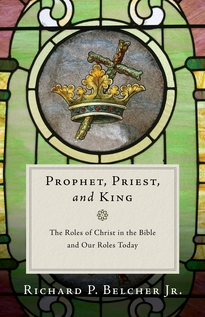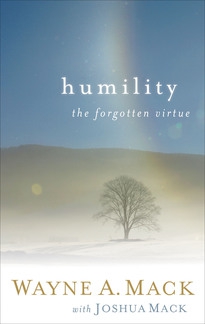1. Big Beliefs!: Small Devotionals Introducing Your Family to Big Truths edited by David R. Helm
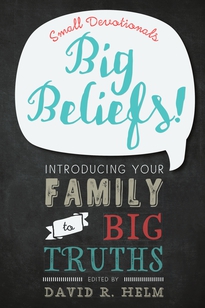
192 pages | List Price: $14.99 | Paperback | Sample Chapter
SUMMARY
It is a wonderful privilege to watch children start to grasp the precious truths of Scripture. Parents may hope to see this in a family devotion time, only to become overwhelmed and exhausted by the daily difficulties involved. We need help!
Big Beliefs! is a devotional expressly intended to enable parents to succeed and children to grow in grace and knowledge. Three weekly readings accompanied by suggested Scripture passages introduce and simply explain thirty-three key theological concepts found in the Westminster Confession of Faith (included in its entirety, in modern English). Questions following each reading will help you to start a conversation about what you have learned each day. This nonthreatening, encouraging devotional will make a comprehensive beginning to your child’s understanding of Christianity’s big beliefs.
ENDORSEMENTS
“Big Beliefs! is a great book: (1) it’s faithful, telling children the truth about God, his Word, and what his people must believe; (2) it’s substantive, not dumbing down doctrine to present it to children; and (3) it’s realistic, providing language, illustrations, and lesson length that will work for real families who have real children.”
—Starr Meade, Author, Training Hearts, Teaching Minds: Family Devotions Based on the Shorter Catechism
“A family devotional teaching the most important truths in the world in simple bite-size chunks with up-to-date illustrations and stimulating questions. Why didn’t someone think of this before? I commend this excellent resource to all Christian families.”
—David Murray, Pastor, Grand Rapids Free Reformed Church
2. Faithfulness: No More Excuses by Lou Priolo
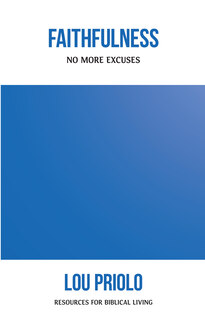
32 Pages | List Price: $4.99 | Booklet | Resources for Biblical Living series | Sample Chapter
SUMMARY
Faithfulness is one of the most important qualities for Christian service. Are you faithful? There are some simple, and perhaps surprising, ways to find out. Biblical counselor Lou Priolo defines faithfulness and provides three tests for assessing your trustworthiness. Through instruction and straightforward exercises, he helps you to turn from fear and excuses and embrace your God-given responsibilities.
ENDORSEMENT
“The people who make the greatest impact for Christ always have one thing in common. They’ve learned to be faithful. If you want to live all out for Christ, Lou Priolo will help you to see the importance of faithfulness, give you a clear explanation of what faithfulness looks like, motivate you to pursue faithfulness, and help you to know how to become more a faithful and fruitful person in your day-to-day life.”
—Joshua Mack, Pastor-teacher of Living Hope Church, Pretoria, South Africa
ABOUT THE AUTHOR
Lou Priolo is the founder and president of Competent to Counsel International and is an instructor with Birmingham Theological Seminary. He has been a full-time biblical counselor since 1985 and is a fellow of the Association of Certified Biblical Counselors. Lou lives in Birmingham, Alabama, with his wife, Kim, and his daughters, Sophia and Gabriella.
3. The Revolt: A Novel in Wycliffe’s England by Douglas Bond

272 pages | List Price: $11.99 | Paperback | Sample Chapter
SUMMARY
As a secretary at the battle of Crécy, Hugh West’all has come close to death many times in his short career. But when he leaves the war behind to enter the stone halls of Oxford, he meets John of Wycliffe and soon embarks on a mission even more exciting—and perhaps just as dangerous. Using his scribe’s quill to translate the Bible into English, the language of the common people, Hugh begins to understand the beauty of the gospel as never before. But he and his friends are not safe. The corrupt and decadent church is planning to choke Wycliffe’s translation and silence him forever.
ENDORSEMENTS
“Douglas Bond uses his unique writing style to produce a highly readable imagining of the travails of John Wycliffe, the 14th century ‘heretic’ who dared to make the eternal truths of the Bible accessible to the marginalized people group of his day: English peasants. This vivid and exciting narrative reminds us of the very real challenges to Bible translation over the centuries and of the importance in carrying out the work he started.”
—Bob Creson, President and CEO, Wycliffe Bible Translators
“The gilded histories often fail to note how extraordinary times invade ordinary lives. Douglas Bond paints the days of John Wycliffe in full color, showing that the Morningstar rose over filthy streets and jaded lives—and brought real hope to hearts in bondage.”
—Jeremiah W. Montgomery, Author, The Dark Harvest Trilogy
“The Revolt is a feast for the senses filled with accounts of battles, deception, heartache, integrity, and devotion.”
—Chuck Bentley, CEO, Crown Financial Ministries
ABOUT THE AUTHOR
Douglas Bond is the author of a number of books of historical fiction and biography. He and his wife have two daughters and four sons. Bond is an elder in the Presbyterian Church of America, a teacher, a conference speaker, and a leader of church history tours. Visit his website at www.bondbooks.net.
4. God’s Mysterious Ways: Embracing God’s Providence in Esther, A Ten-Lesson Bible Study by Jane Roach
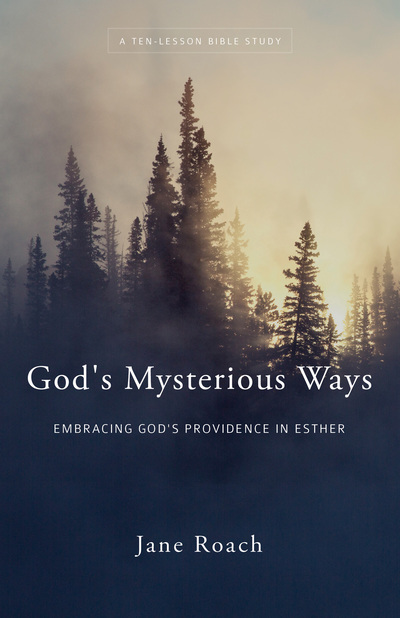
256 pages | List Price: $12.99 | Paperback
SUMMARY
God sustains and reigns over all his created order. Everything that happens occurs because God wills it according to his purposes, plan, way, and time, and he sometimes calls ordinary people to accomplish extraordinary tasks. The book of Esther gives us a fascinating historical narrative of God’s providential activity amongst a failed attempt to annihilate exiled Jews in the Persian Empire. Jane Roach uses insightful commentary, application questions, testimonies, and hymns to walk readers through the compelling story, introduce characters, and identify God’s providence. As you study the book of Esther, you will be prepared to see God’s hand in your own circumstances, to lean on him with wholehearted trust and worship, and to experience a new life of gratitude, peace, and joy.
ENDORSEMENTS
“God’s sovereignty and providential care over all things is one of the most important and foundational doctrines of our faith. . . . is theologically rich study takes us through the pages of God’s Word to see that all God’s purposes come to pass.”
—Christina Fox, Author, A Heart Set Free
“Jane Roach’s insightful study-and-discussion questions and clear exposition blend serious engagement with the scriptural text with a focus on Christ, our true Rescuer. . . . It will move you to worship the Lord in awe at all times and to rest in his sovereign wisdom and love in times of trial.”
—Dennis E. Johnson, Author, Walking with Jesus through His Word
“This resource will be a tremendous aid to personal worship and devotional study, as well as for small group discussions. Discover God’s providence in Esther and you will learn to see God’s presence in your own life.”
—Richard D. Phillips, Senior Minister, Second Presbyterian Church, Greenville
ABOUT THE AUTHOR
Jane Roach was Director of Training for Bible Study Fellowship for more than twenty-five years. She currently teaches two Bible studies, is part of the steering committee for the Texas Hill Country Bible Conference, and assists with women’s ministries at her church.
5. Resolving Conflict: How to Make, Disturb, and Keep Peace by Lou Priolo
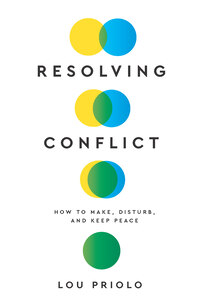
320 pages | List Price: $15.99 | Paperback
SUMMARY
Many Christians see conflict as a dirty word—something wrong to be avoided at all costs. After all, aren’t Christians to be peacemakers who strive to maintain unity? But, as Lou Priolo reminds us, many other things that the Bible exhorts us to do—including its commands to convict, rebuke, and admonish other Christians—make conflict a necessary part of the Christian life.
Lou takes us through the biblical principles of conflict resolution, beginning before conflict even starts. He shows us the prerequisites we must have as we go into conflict, what is at the heart of our conflict, when it is biblical and unbiblical, and how we should respond to it. He also shares practical steps and advice, giving us specific talking points to resolve conflict and journaling exercises to help us to grow when it happens. Learn how to “make every effort” to maintain unity—even when that effort involves conflict first!
ENDORSEMENT
“Conflicts are like forest fires. If you can put them out while they’re still small, you can save an enormous amount of time and effort. That’s why this book is so valuable: it provides simple, biblically sound, and incredibly effective insights for resolving conflict in its earliest stages, when it still involves only two people. If you learn and practice these principles, you will spend more time enjoying the people around you—rather than fighting prolonged relational fires.”
—Ken Sande, President, Relational Wisdom 360; Author, The Peacemaker
ABOUT THE AUTHOR
Lou Priolo is the founder and president of Competent to Counsel International and is an instructor with Birmingham Theological Seminary. He has been a full-time biblical counselor since 1985 and is a fellow of the Association of Certified Biblical Counselors. Lou lives in Birmingham, Alabama, with his wife, Kim, and his daughters, Sophia and Gabriella.

